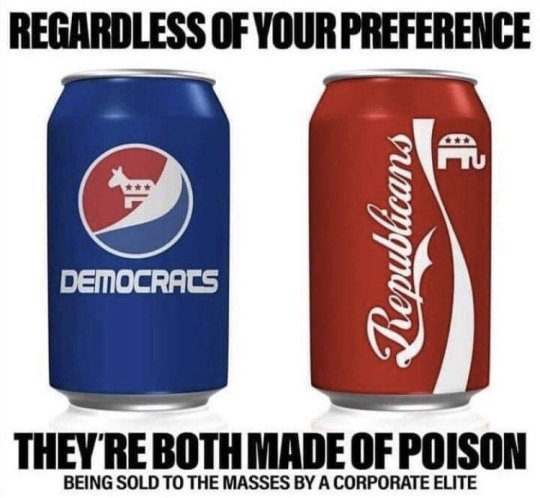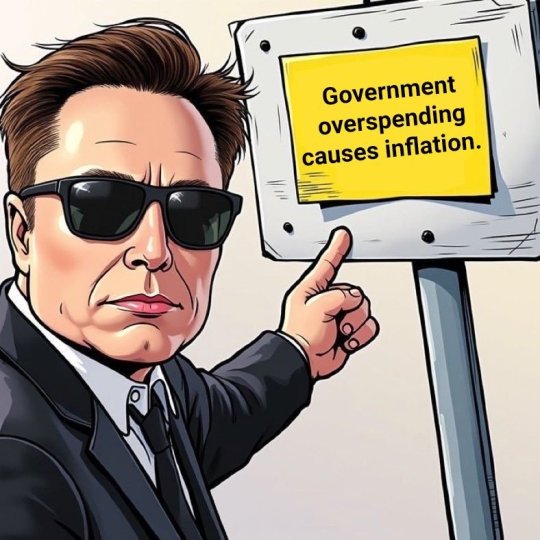#lawsuit in China
Explore tagged Tumblr posts
Text
It's important to note that instead of banning the app they could easily protect us citizen privacy by enacting stricter laws on what data apps are allowed to collect and what they can do with it.
But that would punish Facebook and X.
And they get paid way too much money to do that.
So it's red scare 2
so the house of representatives just passed a bill that will now move to the senate to BAN tik tok completely in the united states and they are expected to argue that “national security risks” outweigh the freedom of speech and first amendment rights. biden has already said that if it gets to him, he will sign it. whether or not you use the app…….this is something to be worried about
#as i pointed out to my family Facebook has been known for selling data#they enabled the Russians to make false election claims#they lost a lawsuit about that! but they didnt actually change anything#if you are worried about your data being sold to China well Facebook is already doing that!#US companies are delling our information like crazy and having data breeches left and right
55K notes
·
View notes
Text
China badminton player paralysed after standing on stray cat in stadium during game, court orders feline ‘keeper’ pay US$33,000 in compensation
New Post has been published on https://petn.ws/TfAqV
China badminton player paralysed after standing on stray cat in stadium during game, court orders feline ‘keeper’ pay US$33,000 in compensation
A court in China has ordered a man who fed a stray cat to pay compensation of 240,000 yuan (US$33,000) to a badminton enthusiast who was paralysed when the feline tripped him up during a game. The man, surnamed Xiao, an employee of a badminton stadium in Shanghai, must bear legal responsibility because the cat […]
See full article at https://petn.ws/TfAqV #CatsNews #Accident, #AnimalAccidents, #Badminton, #BadmintonCourt, #Cat, #China, #ChinaPets, #Compensation, #Court, #Employee, #FeedingCats, #Feline, #Fracture, #FurryAnimals, #Injury, #Lawsuit, #Legal, #Paralysis8217, #Pet, #Responsibility, #SportingInjury, #Stadium, #StrayAnimal, #StrayCats, #Toilet8221, #Verdict, #Video, #WarningMessage, #Weibo
#accident#animal accidents#badminton#badminton court#cat#china#China pets#compensation#court#employee#feeding cats#feline#fracture#furry animals#injury#lawsuit#legal#paralysis&8217;#pet#responsibility#sporting injury#stadium#stray animal#stray cats#toilet&8221;#verdict:#video#warning message#Weibo#Cats News
0 notes
Text
"The story of 'John Doe 1' of the Democratic Republic of the Congo is tucked in a lawsuit filed five years ago against several U.S. tech companies, including Tesla, the world’s largest electric vehicle producer. In a country where the earth hides its treasures beneath its surface, those who chip away at its bounty pay an unfair price. As a pre-teen, his family could no longer afford to pay his $6 monthly school fee, leaving him with one option: a life working underground in a tunnel, digging for cobalt rocks. But soon after he began working for roughly two U.S. dollars per day, the child was buried alive under the rubble of a collapsed mine tunnel. His body was never recovered.
The nation, fractured by war, disease, and famine, has seen more than 6 million people die since the mid-1990s, making the conflict the deadliest since World War II. But, in recent years, the death and destruction have been aided by the growing number of electric vehicles humming down American streets. In 2022, the U.S., the world’s third-largest importer of cobalt, spent nearly $525 million on the mineral, much of which came from the Congo.
As America’s dependence on the Congo has grown, Black-led labor and environmental organizers here in the U.S. have worked to build a transnational solidarity movement. Activists also say that the inequities faced in the Congo relate to those that Black Americans experience. And thanks in part to social media, the desire to better understand what’s happening in the Congo has grown in the past 10 years. In some ways, the Black Lives Matter movement first took root in the Congo after the uprising in Ferguson in 2014, advocates say. And since the murder of George Floyd and the outrage over the Gaza war, there has been an uptick in Congolese and Black American groups working on solidarity campaigns.
Throughout it all, the inequities faced by Congolese people and Black Americans show how the supply chain highlights similar patterns of exploitation and disenfranchisement. ... While the American South has picked up about two-thirds of the electric vehicle production jobs, Black workers there are more likely to work in non-unionized warehouses, receiving less pay and protections. The White House has also failed to share data that definitively proves whether Black workers are receiving these jobs, rather than them just being placed near Black communities. 'Automakers are moving their EV manufacturing and operations to the South in hopes of exploiting low labor costs and making higher profits,' explained Yterenickia Bell, an at-large council member in Clarkston, Georgia, last year. While Georgia has been targeted for investment by the Biden administration, workers are 'refusing to stand idly by and let them repeat a cycle that harms Black communities and working families.'
... Of the 255,000 Congolese mining for cobalt, 40,000 are children. They are not only exposed to physical threats but environmental ones. Cobalt mining pollutes critical water sources, plus the air and land. It is linked to respiratory illnesses, food insecurity, and violence. Still, in March, a U.S. court ruled on the case, finding that American companies could not be held liable for child labor in the Congo, even as they helped intensify the prevalence. ... Recently, the push for mining in the Congo has reached new heights because of a rift in China-U.S. relations regarding EV production. Earlier this month, the Biden administration issued a 100% tariff on Chinese-produced EVs to deter their purchase in the U.S. Currently, China owns about 80% of the legal mines in the Congo, but tens of thousands of Congolese work in 'artisanal' mines outside these facilities, where there are no rules or regulations, and where the U.S. gets much of its cobalt imports. 'Cobalt mining is the slave farm perfected,' wrote Siddharth Kara last year in the award-winning investigative book Cobalt Red: How The Blood of the Congo Powers Our Lives. 'It is a system of absolute exploitation for absolute profit.' While it is the world’s richest country in terms of wealth from natural resources, Congo is among the poorest in terms of life outcomes. Of the 201 countries recognized by the World Bank Group, it has the 191st lowest life expectancy."
3K notes
·
View notes
Text
How to prevent Chinese companies from providing products with quality that does not meet the requirements?
Preventing Chinese companies (or any companies) from providing products that do not meet the required quality standards involves a combination of measures at various levels. Based on fifteen years of experience in handling such issues, Xu Baotong shares with the lawyer team as follows.

The following steps can be taken to address and mitigate quality issues:
Establish Clear Quality Standards:
Define specific and clear quality standards and requirements for the products in question. These standards should be communicated to all suppliers, including Chinese companies, before any business transactions.
Product Inspections and Testing:
Implement regular inspections and testing of products to ensure they meet the established quality standards. This can be done by independent third-party inspection agencies or in-house quality control teams.
Supplier Audits
Conduct audits of Chinese companies and other suppliers to assess their manufacturing processes, quality control systems, and adherence to regulations.
Certifications and Compliance
Require Chinese companies to obtain relevant certifications and comply with international quality standards for their products. Examples include ISO certifications or other industry-specific certifications.
Encourage Transparency and Reporting
Encourage Chinese companies to be transparent about their manufacturing processes and to report any potential quality issues promptly. Implement a system for reporting and addressing product defects or non-compliance.
Consumer Education and Awareness
Educate consumers about the importance of quality standards and what to look for in products. This will empower consumers to make informed decisions and choose products from companies that prioritize quality.
Enforcement of Contracts
Ensure that contracts with Chinese companies include clauses that outline consequences for not meeting quality requirements. This could involve penalties, refunds, or termination of contracts if quality standards are consistently not met.
Engage in Collaboration and Dialogue
Foster open communication and collaboration with Chinese companies to understand their challenges and work together to improve product quality.

Government Regulations and Oversight
Governments can enact and enforce regulations that set minimum quality standards for products imported from China and other countries. Regular inspections and monitoring of imported goods can be carried out to ensure compliance.
Encourage Supply Chain Responsibility
Companies should be encouraged to take responsibility for the entire supply chain, including the practices of their suppliers. This will help ensure that products meet quality standards from start to finish.
Promote Ethical Sourcing
Companies can prioritize ethical sourcing practices, which includes evaluating suppliers not just based on cost but also on quality, safety, and labor standards.
Implementing these measures can help improve product quality and prevent Chinese companies (and any other companies) from providing products that do not meet the required standards. It requires collaboration between governments, companies, and consumers to ensure products meet the highest quality levels possible.
Please note that this text should not be considered as legal advice or opinions on specific cases. It only represents the court's judgment rules observed by the author's team when dealing with similar cases. If you encounter legal issues, you may contact Lawyer Xu Baotong for more targeted advice and solutions.
Xu Baotong
Elaw&JinKun Lawfirm |CEO
Arbitrator of China
Member of the Chartered Institute
Member of The Association of Credit and Collection Professionals
Arbitrator of Thailand International Arbitration Center
Mediator of Asian Alternative Dispute Resolution Centre
Menmber of the International Bar Association
Email:[email protected]
WhatsApp:+86 13917219966
0 notes
Video
youtube
China Property Developer Kaisa Faces Hong Kong Lawsuit Seeking To Wind I...
0 notes
Text
Masterpost: Reasons I firmly believe we will beat climate change
Posts are in reverse chronological order (by post date, not article date), mostly taken from my "climate change" tag, which I went through all the way back to the literal beginning of my blog. Will update periodically.
Especially big deal articles/posts are in bold.
Big picture:
Mature trees offer hope in world of rising emissions (x)
Spying from space: How satellites can help identify and rein in a potent climate pollutant (x)
Good news: Tiny urban green spaces can cool cities and save lives (x)
Conservation and economic development go hand in hand, more often than expected (x)
The exponential growth of solar power will change the world (x)
Sun Machines: Solar, an energy that gets cheaper and cheaper, is going to be huge (x)
Wealthy nations finally deliver promised climate aid, as calls for more equitable funding for poor countries grow (x)
For Earth Day 2024, experts are spreading optimism – not doom. Here's why. (x)
Opinion: I’m a Climate Scientist. I’m Not Screaming Into the Void Anymore. (x)
The World’s Forests Are Doing Much Better Than We Think (x)
‘Staggering’ green growth gives hope for 1.5C, says global energy chief (x)
Beyond Catastrophe: A New Climate Reality Is Coming Into View (x)
Young Forests Capture Carbon Quicker than Previously Thought (x)
Yes, climate change can be beaten by 2050. Here's how. (x)
Soil improvements could keep planet within 1.5C heating target, research shows (x)
The global treaty to save the ozone layer has also slowed Arctic ice melt (x)
The doomers are wrong about humanity’s future — and its past (x)
Scientists Find Methane is Actually Offsetting 30% of its Own Heating Effect on Planet (x)
Are debt-for-climate swaps finally taking off? (x)
High seas treaty: historic deal to protect international waters finally reached at UN (x)
How Could Positive ‘Tipping Points’ Accelerate Climate Action? (x)
Specific examples:
Environmental Campaigners Celebrate As Labour Ends Tory Ban On New Onshore Wind Projects (x)
Private firms are driving a revolution in solar power in Africa (x)
How the small Pacific island nation of Vanuatu drastically cut plastic pollution (x)
Rewilding sites have seen 400% increase in jobs since 2008, research finds [Scotland] (x)
The American Climate Corps take flight, with most jobs based in the West (x)
Waste Heat Generated from Electronics to Warm Finnish City in Winter Thanks to Groundbreaking Thermal Energy Project (x)
Climate protection is now a human right — and lawsuits will follow [European Union] (x)
A new EU ecocide law ‘marks the end of impunity for environmental criminals’ (x)
Solar hits a renewable energy milestone not seen since WWII [United States] (x)
These are the climate grannies. They’ll do whatever it takes to protect their grandchildren. [United States and Native American Nations] (x)
Century of Tree Planting Stalls the Warming Effects in the Eastern United States, Says Study (x)
Chart: Wind and solar are closing in on fossil fuels in the EU (x)
UK use of gas and coal for electricity at lowest since 1957, figures show (x)
Countries That Generate 100% Renewable Energy Electricity (x)
Indigenous advocacy leads to largest dam removal project in US history [United States and Native American Nations] (x)
India’s clean energy transition is rapidly underway, benefiting the entire world (x)
China is set to shatter its wind and solar target five years early, new report finds (x)
‘Game changing’: spate of US lawsuits calls big oil to account for climate crisis (x)
Largest-ever data set collection shows how coral reefs can survive climate change (x)
The Biggest Climate Bill of Your Life - But What Does It DO? [United States] (x)
Good Climate News: Headline Roundup April 1st through April 15th, 2023 (x)
How agroforestry can restore degraded lands and provide income in the Amazon (x) [Brazil]
Loss of Climate-Crucial Mangrove Forests Has Slowed to Near-Negligable Amount Worldwide, Report Hails (x)
Agroecology schools help communities restore degraded land in Guatemala (x)
Climate adaptation:
Solar-powered generators pull clean drinking water 'from thin air,' aiding communities in need: 'It transforms lives' (x)
‘Sponge’ Cities Combat Urban Flooding by Letting Nature Do the Work [China] (x)
Indian Engineers Tackle Water Shortages with Star Wars Tech in Kerala (x)
A green roof or rooftop solar? You can combine them in a biosolar roof — boosting both biodiversity and power output (x)
Global death tolls from natural disasters have actually plummeted over the last century (x)
Los Angeles Just Proved How Spongy a City Can Be (x)
This city turns sewage into drinking water in 24 hours. The concept is catching on [Namibia] (x)
Plants teach their offspring how to adapt to climate change, scientists find (x)
Resurrecting Climate-Resilient Rice in India (x)
Other Masterposts:
Going carbon negative and how we're going to fix global heating (x)
#climate change#climate crisis#climate action#climate emergency#climate anxiety#climate solutions#fossil fuels#pollution#carbon emissions#solar power#wind power#trees#forests#tree planting#biodiversity#natural disasters#renewables#renewable electricity#united states#china#india#indigenous nations#european union#plant biology#brazil#uk#vanuatu#scotland#england#methane
2K notes
·
View notes
Text

CLN Law Firm is the perfect choice if you are looking for a reliable firm to handle your China lawsuit. Our team of experienced attorneys is dedicated to providing the best legal representation available for our clients.
Email: [email protected]
0 notes
Note
how does rebirth and reincarnation work in Buddhism
do memories carry over and Can personality traits or characteristics also stay the same
or does being reborn erase everything and basically reboot a person
is everyone reincarnated or just some people and what causes rebirth
if you don’t want to explain it can you please reply with links to websites where I can find information on the topic
Disclaimer: Everything I write here is less Indian Buddhism, and more "sinicized Buddhist concepts", aka "Chinese adoptation of the ideas of karmic laws and reincarnation, with a bunch of tweaks".
-There are 6 paths of rebirth: Heavenly/Deva, Asura, Human, Beasts, Hungry Ghosts, Hell. In practice, because of unfamiliarity with the Hindu Asura ("wrathful demigods"), it often gets simplified into 5 paths instead.
-Based on one's karma (consequences of one's causes), one is reborn into one of these Paths after death. The first 3 are commonly seen as the "3 good paths", while the last 3 are the "3 bad paths".
-Technically, even being reborn as a celestial being does not free you from suffering, since, despite the incredibly long lifespan of celestials and the pleasures they enjoy, their stay there is still not infinite, and they'll be reborn into a lower path once their Good Deeds Bank runs out, so to speak.
-However, in lay practice, being reborn in the Heavenly path is often considered "Good enough".
-Similarly, in more doctrinal Buddhism, the concept of "non-being" and the lack of a permanent, eternal self is a big thing (where there's no continuation of the self between each life, memory-wise or personality-wise).
-Yet after its spread to China, it was adjusted to fit, and syncretized with existing beliefs about souls and ancestor worship, and honestly, folks pretty much assumed that there is a...soul thingy that gets reincarnated, and some sort of continuation exists between each life.
-In Northern-Southern dynasty and Tang legends, there are a lot of tales about people who remembered their past lives, or people who suffered misfortune/got a lawsuit from ghosts in the Underworld bc of bad things they did in another life.
-However, in the latter case, they often don't remember. It is kinda implied that reincarnation itself blurred/erased their memories, but never explicitly explained.
-The much later Ming-Qing addition of Mengpo and her amnesia soup could be seen as a "fix-it" to that question: people don't remember their past lives bc the amnesia soup is mandatory, and the few who remembered are folks who had found a way to avoid drinking it.
-Like all folklore stuff, it's far from universally adopted, and in Liaozhai, you can still see tales like Lian Xiang's, where the fox spirit in question died, reincarnated into a human body, and remembered her old ghostly rival-turned-best-friend upon seeing her again.
-In vernacular novels and tales about reincarnated immortals and celestial deities, like JTTS and JTTN, it's more common for the protagonists to remember their original self from start to finish, or recover their memories after being informed of that fact and settle on working their way back into their old position.
-As for "does everyone have to go through reincarnation?" Unless you are a Buddha, a Bodhisattva, or Arhat, technically yes.
-After Daoism adopted the Buddhist ideas of karma and reincarnation, there were also works that suggested, by attaining immortality, you wouldn't have to reincarnate again...
-But I personally saw that as more of a "immortality just means no natural death, not unkillable" situation——the immortal in question won't have to reincarnate bc they can no longer die of old age, but if sth comes along and kill them, or they got demoted by the Heavenly Emperor for breaking celestial laws, their soul will still re-enter the cycle.
-Lastly, what causes rebirth? Well...existing. As long as you are within the Realm of Desire and a being of the Six Paths, you are subjected to the cosmological cycle, and to Buddhists, the only way out is attaining enlightenment.
211 notes
·
View notes
Text
"If voting changed anything, they'd make it illegal."
🇺🇸JEFFREY SACHS says ⬇️

"Who elected Trump? Billionaires.
Who was opposing Trump with Harris? Billionaires.
When you look at our politics—'We the People'—we are like spectators at a sport.
Who are the billionaires? Well, it's that list on one side and that list on the other.
We sit back—who's going to win? I don't know, but it's going to be the billionaires.
So what do the billionaires backing Trump want? Tax cuts.
What did the billionaires backing Harris want? Tax cuts.
What is the election going to produce? Tax cuts.
Big surprise. Is it a drama? Of course it's not a drama.
Our Congress is corrupt. Our political system is corrupt. It's run by the big boys, not by the little people, so we're going to have more tax cuts.
Here comes Trump, elected by a disgruntled voting population—the working class. This is his core.
And he's telling the working class, 'You've been cheated. I'm going to support you.'
And what's he going to do? He's going to give tax cuts to the richest people in the world.
You know, ten people now—TEN PEOPLE—have a net worth of $2 trillion.
I'm sorry, we can't even imagine what this means.
The days after Trump was elected, their net worth increased by $100 billion—in days.
Because people who have money know, 'Oh, this is a bonanza for the billionaires.'
By the way, if Harris had won, it probably would have gone up the same way—because it's billionaires on both sides.
So this deficit is going to rise; it's not going to fall.
Now Trump has a very particular, clever electoral strategy.
He says to the voters, 'The billionaires are your friends. That's not the problem. Your enemy is the immigrant and your enemy is China. I'm going to go after your enemies, not your friends, the billionaires.'
So what Trump says is, 'I'm going to raise tariffs on the Chinese, I'm going to kick out the immigrants, and you're going to live the American dream.'
And it's not going to happen.
And sure enough, within the next few years, the Trump administration will be a failure—widening income inequalities, big unhappiness, larger budget deficits, frictions with China, a lot of lawsuits in the United States, and people trying to stay in the U.S. who are threatened with deportation.
It's not going to be a happy period.
And this, unfortunately, comes from the fact that when you have two parties—billionaires backing this one and billionaires backing that one—someone gets left out.
And that's the people."

youtube
How rich people fukkk over Americans
This is a concept that meets a lot of resistance in the US, where Americans are taught to worship money.
Thus, ordinary people - especially conservatives - admire rich people regardless of how the wealth is acquired.
And the rich people are good at diversion — they blame the government, China, immigrants etc.

56 notes
·
View notes
Text
James O'Keefe FEC Lawsuit: Chinese Ties To Democrat ActBlue Money Laundering Scheme
“Evidence that over 60% of the money involved in this is apparently coming from China”
Laundered as fraud donations “done through the home addresses of the elderly”
“Act Blue FEC investigation into money apparently laundered from various addresses through act blue.
Election Watch will be filing a complaint with the FEC and DC over the discrepancies and apparent fraud that has taken place with all these donations, many of which are done through the home addresses of the elderly.
Election watch will file the complaint with the FEC, wait the required 120 days, and then file a lawsuit in the northern district of Virginia.
Included in that lawsuit will be evidence that over 60% of the money involved in this is apparently coming from China.
ActBlue is feeding a lot of money to other packs like Emily's list, color of change pack, just to name a few. Much of this information through election watch came from Internet tracing Internet traffic patterns.
105 notes
·
View notes
Text
A long trip on an American highway in the summer of 2024 leaves the impression that two kinds of billboards now have near-monopoly rule over our roads. On one side, the billboards, gravely black-and-white and soberly reassuring, advertise cancer centers. (“We treat every type of cancer, including the most important one: yours”; “Beat 3 Brain Tumors. At 57, I gave birth, again.”) On the other side, brightly colored and deliberately clownish billboards advertise malpractice and personal-injury lawyers, with phone numbers emblazoned in giant type and the lawyers wearing superhero costumes or intimidating glares, staring down at the highway as they promise to do to juries.
A new Tocqueville considering the landscape would be certain that all Americans do is get sick and sue each other. We ask doctors to cure us of incurable illnesses, and we ask lawyers to take on the doctors who haven’t. We are frightened and we are angry; we look to expert intervention for the fears, and to comic but effective-seeming figures for retaliation against the experts who disappoint us.
Much of this is distinctly American—the idea that cancer-treatment centers would be in competitive relationships with one another, and so need to advertise, would be as unimaginable in any other industrialized country as the idea that the best way to adjudicate responsibility for a car accident is through aggressive lawsuits. Both reflect national beliefs: in competition, however unreal, and in the assignment of blame, however misplaced. We want to think that, if we haven’t fully enjoyed our birthright of plenty and prosperity, a nameable villain is at fault.
To grasp what is at stake in this strangest of political seasons, it helps to define the space in which the contest is taking place. We may be standing on the edge of an abyss, and yet nothing is wrong, in the expected way of countries on the brink of apocalypse. The country is not convulsed with riots, hyperinflation, or mass immiseration. What we have is a sort of phony war—a drôle de guerre, a sitzkrieg—with the vehemence of conflict mainly confined to what we might call the cultural space.
These days, everybody talks about spaces: the “gastronomic space,” the “podcast space,” even, on N.F.L. podcasts, the “analytic space.�� Derived from some combination of sociology and interior design, the word has elbowed aside terms like “field” or “conversation,” perhaps because it’s even more expansive. The “space” of a national election is, for that reason, never self-evident; we’ve always searched for clues.
And so William Dean Howells began his 1860 campaign biography of Abraham Lincoln by mocking the search for a Revolutionary pedigree for Presidential candidates and situating Lincoln in the antislavery West, in contrast to the resigned and too-knowing East. North vs. South may have defined the frame of the approaching war, but Howells was prescient in identifying East vs. West as another critical electoral space. This opposition would prove crucial—first, to the war, with the triumph of the Westerner Ulysses S. Grant over the well-bred Eastern generals, and then to the rejuvenation of the Democratic Party, drawing on free-silver populism and an appeal to the values of the resource-extracting, expansionist West above those of the industrialized, centralized East.
A century later, the press thought that the big issues in the race between Richard Nixon and John F. Kennedy were Quemoy and Matsu (two tiny Taiwan Strait islands, claimed by both China and Taiwan), the downed U-2, the missile gap, and other much debated Cold War obsessions. But Norman Mailer, in what may be the best thing he ever wrote, saw the space as marked by the rise of movie-star politics—the image-based contests that, from J.F.K. to Ronald Reagan, would dominate American life. In “Superman Comes to the Supermarket,” published in Esquire, Mailer revealed that a campaign that looked at first glance like the usual black-and-white wire-service photography of the first half of the twentieth century was really the beginning of our Day-Glo-colored Pop-art turn.
And our own electoral space? We hear about the overlooked vs. the élite, the rural vs. the urban, the coastal vs. the flyover, the aged vs. the young—about the dispossessed vs. the beneficiaries of global neoliberalism. Upon closer examination, however, these binaries blur. Support for populist nativism doesn’t track neatly with economic disadvantage. Some of Donald Trump’s keenest supporters have boats as well as cars and are typically the wealthier citizens of poorer rural areas. His stock among billionaires remains high, and his surprising support among Gen Z males is something his campaign exploits with visits to podcasts that no non-Zoomer has ever heard of.
But polarized nations don’t actually polarize around fixed poles. Civil confrontations invariably cross classes and castes, bringing together people from radically different social cohorts while separating seemingly natural allies. The English Revolution of the seventeenth century, like the French one of the eighteenth, did not array worn-out aristocrats against an ascendant bourgeoisie or fierce-eyed sansculottes. There were, one might say, good people on both sides. Or, rather, there were individual aristocrats, merchants, and laborers choosing different sides in these prerevolutionary moments. No civil war takes place between classes; coalitions of many kinds square off against one another.
In part, that’s because there’s no straightforward way of defining our “interests.” It’s in the interest of Silicon Valley entrepreneurs to have big tax cuts; in the longer term, it’s also in their interest to have honest rule-of-law government that isn’t in thrall to guilds or patrons—to be able to float new ideas without paying baksheesh to politicians or having to worry about falling out of sixth-floor windows. “Interests” fail as an explanatory principle.
Does talk of values and ideas get us closer? A central story of American public life during the past three or four decades is (as this writer has noted) that liberals have wanted political victories while reliably securing only cultural victories, even as conservatives, wanting cultural victories, get only political ones. Right-wing Presidents and legislatures are elected, even as one barrier after another has fallen on the traditionalist front of manners and mores. Consider the widespread acceptance of same-sex marriage. A social transformation once so seemingly untenable that even Barack Obama said he was against it, in his first campaign for President, became an uncontroversial rite within scarcely more than a decade.
Right-wing political power has, over the past half century, turned out to have almost no ability to stave off progressive social change: Nixon took the White House in a landslide while Norman Lear took the airwaves in a ratings sweep. And so a kind of permanent paralysis has set in. The right has kept electing politicians who’ve said, “Enough! No more ‘Anything goes’!”—and anything has kept going. No matter how many right-wing politicians came to power, no matter how many right-wing judges were appointed, conservatives decided that the entire culture was rigged against them.
On the left, the failure of cultural power to produce political change tends to lead to a doubling down on the cultural side, so that wholesome college campuses can seem the last redoubt of Red Guard attitudes, though not, to be sure, of Red Guard authority. On the right, the failure of political power to produce cultural change tends to lead to a doubling down on the political side in a way that turns politics into cultural theatre. Having lost the actual stages, conservatives yearn to enact a show in which their adversaries are rendered humiliated and powerless, just as they have felt humiliated and powerless. When an intolerable contradiction is allowed to exist for long enough, it produces a Trump.
As much as television was the essential medium of a dozen bygone Presidential campaigns (not to mention the medium that made Trump a star), the podcast has become the essential medium of this one. For people under forty, the form—typically long-winded and shapeless—is as tangibly present as Walter Cronkite’s tightly scripted half-hour news show was fifty years ago, though the D.I.Y. nature of most podcasts, and the premium on host-read advertisements, makes for abrupt tonal changes as startling as those of the highway billboards.
On the enormously popular, liberal-minded “Pod Save America,” for instance, the hosts make no secret of their belief that the election is a test, as severe as any since the Civil War, of whether a government so conceived can long endure. Then they switch cheerfully to reading ads for Tommy John underwear (“with the supportive pouch”), for herbal hangover remedies, and for an app that promises to cancel all your excess streaming subscriptions, a peculiarly niche obsession (“I accidentally paid for Showtime twice!” “That’s bad!”). George Conway, the former Republican (and White House husband) turned leading anti-Trumper, states bleakly on his podcast for the Bulwark, the news-and-opinion site, that Trump’s whole purpose is to avoid imprisonment, a motivation that would disgrace the leader of any Third World country. Then he immediately leaps into offering—like an old-fashioned a.m.-radio host pushing Chock Full o’Nuts—testimonials for HexClad cookware, with charming self-deprecation about his own kitchen skills. How serious can the crisis be if cookware and boxers cohabit so cozily with the apocalypse?
And then there’s the galvanic space of social media. In the nineteen-seventies and eighties, we were told, by everyone from Jean Baudrillard to Daniel Boorstin, that television had reduced us to numbed observers of events no longer within our control. We had become spectators instead of citizens. In contrast, the arena of social media is that of action and engagement—and not merely engagement but enragement, with algorithms acting out addictively on tiny tablets. The aura of the Internet age is energized, passionate, and, above all, angry. The algorithms dictate regular mortar rounds of text messages that seem to come not from an eager politician but from an infuriated lover, in the manner of Glenn Close in “Fatal Attraction”: “Are you ignoring us?” “We’ve reached out to you PERSONALLY!” “This is the sixth time we’ve asked you!” At one level, we know they’re entirely impersonal, while, at another, we know that politicians wouldn’t do this unless it worked, and it works because, at still another level, we are incapable of knowing what we know; it doesn’t feel entirely impersonal. You can doomscroll your way to your doom. The democratic theorists of old longed for an activated citizenry; somehow they failed to recognize how easily citizens could be activated to oppose deliberative democracy.
If the cultural advantages of liberalism have given it a more pointed politics in places where politics lacks worldly consequences, its real-world politics can seem curiously blunted. Kamala Harris, like Joe Biden before her, is an utterly normal workaday politician of the kind we used to find in any functioning democracy—bending right, bending left, placating here and postponing confrontation there, glaring here and, yes, laughing there. Demographics aside, there is nothing exceptional about Harris, which is her virtue. Yet we live in exceptional times, and liberal proceduralists and institutionalists are so committed to procedures and institutions—to laws and their reasonable interpretation, to norms and their continuation—that they can be slow to grasp that the world around them has changed.
One can only imagine the fulminations that would have ensued in 2020 had the anti-democratic injustice of the Electoral College—which effectively amplifies the political power of rural areas at the expense of the country’s richest and most productive areas—tilted in the other direction. Indeed, before the 2000 election, when it appeared as if it might, Karl Rove and the George W. Bush campaign had a plan in place to challenge the results with a “grassroots” movement designed to short-circuit the Electoral College and make the popular-vote winner prevail. No Democrat even suggests such a thing now.
It’s almost as painful to see the impunity with which Supreme Court Justices have torched their institution’s legitimacy. One Justice has the upside-down flag of the insurrectionists flying on his property; another, married to a professional election denialist, enjoys undeclared largesse from a plutocrat. There is, apparently, little to be done, nor even any familiar language of protest to draw on. Prepared by experience to believe in institutions, mainstream liberals believe in their belief even as the institutions are degraded in front of their eyes.
In one respect, the space of politics in 2024 is transoceanic. The forms of Trumpism are mirrored in other countries. In the U.K., a similar wave engendered the catastrophe of Brexit; in France, it has brought an equally extreme right-wing party to the brink, though not to the seat, of power; in Italy, it elevated Matteo Salvini to national prominence and made Giorgia Meloni Prime Minister. In Sweden, an extreme-right group is claiming voters in numbers no one would ever have thought possible, while Canadian conservatives have taken a sharp turn toward the far right.
What all these currents have in common is an obsessive fear of immigration. Fear of the other still seems to be the primary mover of collective emotion. Even when it is utterly self-destructive—as in Britain, where the xenophobia of Brexit cut the U.K. off from traditional allies while increasing immigration from the Global South—the apprehension that “we” are being flooded by frightening foreigners works its malign magic.
It’s an old but persistent delusion that far-right nationalism is not rooted in the emotional needs of far-right nationalists but arises, instead, from the injustices of neoliberalism. And so many on the left insist that all those Trump voters are really Bernie Sanders voters who just haven’t had their consciousness raised yet. In fact, a similar constellation of populist figures has emerged, sharing platforms, plans, and ideologies, in countries where neoliberalism made little impact, and where a strong system of social welfare remains in place. If a broadened welfare state—national health insurance, stronger unions, higher minimum wages, and the rest—would cure the plague in the U.S., one would expect that countries with resilient welfare states would be immune from it. They are not.
Though Trump can be situated in a transoceanic space of populism, he isn’t a mere symptom of global trends: he is a singularly dangerous character, and the product of a specific cultural milieu. To be sure, much of New York has always been hostile to him, and eager to disown him; in a 1984 profile of him in GQ, Graydon Carter made the point that Trump was the only New Yorker who ever referred to Sixth Avenue as the “Avenue of the Americas.” Yet we’re part of Trump’s identity, as was made clear by his recent rally on Long Island—pointless as a matter of swing-state campaigning, but central to his self-definition. His belligerence could come directly from the two New York tabloid heroes of his formative years in the city: John Gotti, the gangster who led the Gambino crime family, and George Steinbrenner, the owner of the Yankees. When Trump came of age, Gotti was all over the front page of the tabloids, as “the Teflon Don,” and Steinbrenner was all over the back sports pages, as “the Boss.”
Steinbrenner was legendary for his middle-of-the-night phone calls, for his temper and combativeness. Like Trump, who theatricalized the activity, he had a reputation for ruthlessly firing people. (Gotti had his own way of doing that.) Steinbrenner was famous for having no loyalty to anyone. He mocked the very players he had acquired and created an atmosphere of absolute chaos. It used to be said that Steinbrenner reduced the once proud Yankees baseball culture to that of professional wrestling, and that arena is another Trumpian space. Pro wrestling is all about having contests that aren’t really contested—that are known to be “rigged,” to use a Trumpian word—and yet evoke genuine emotion in their audience.
At the same time, Trump has mastered the gangster’s technique of accusing others of crimes he has committed. The agents listening to the Gotti wiretap were mystified when he claimed innocence of the just-committed murder of Big Paul Castellano, conjecturing, in apparent seclusion with his soldiers, about who else might have done it: “Whoever killed this cocksucker, probably the cops killed this Paul.” Denying having someone whacked even in the presence of those who were with you when you whacked him was a capo’s signature move.
Marrying the American paranoid style to the more recent cult of the image, Trump can draw on the manner of the tabloid star and show that his is a game, a show, not to be taken quite seriously while still being serious in actually inciting violent insurrections and planning to expel millions of helpless immigrants. Self-defined as a showman, he can say anything and simultaneously drain it of content, just as Gotti, knowing that he had killed Castellano, thought it credible to deny it—not within his conscience, which did not exist, but within an imaginary courtroom. Trump evidently learned that, in the realm of national politics, you could push the boundaries of publicity and tabloid invective far further than they had ever been pushed.
Trump’s ability to be both joking and severe at the same time is what gives him his power and his immunity. This power extends even to something as unprecedented as the assault on the U.S. Capitol. Trump demanded violence (“If you don’t fight like hell, you’re not going to have a country anymore”) but stuck in three words, “peacefully and patriotically,” that, however hollow, were meant to immunize him, Gotti-style. They were, so to speak, meant for the cops on the wiretap. Trump’s resilience is not, as we would like to tell our children about resilience, a function of his character. It’s a function of his not having one.
Just as Trump’s support cuts across the usual divisions, so, too, does a divide among his opponents—between the maximizers, who think that Trump is a unique threat to liberal democracy, and the minimizers, who think that he is merely the kind of clown a democracy is bound to throw up from time to time. The minimizers (who can be found among both Marxist Jacobin contributors and Never Trump National Review conservatives) will say that Trump has crossed the wires of culture and politics in a way that opportunistically responds to the previous paralysis, but that this merely places him in an American tradition. Democracy depends on the idea that the socially unacceptable might become acceptable. Andrew Jackson campaigned on similar themes with a similar manner—and was every bit as ignorant and every bit as unaware as Trump. (And his campaigns of slaughter against Indigenous people really were genocidal.) Trump’s politics may be ugly, foolish, and vain, but ours is often an ugly, undereducated, and vain country. Democracy is meant to be a mirror; it shows what it shows.
Indeed, America’s recent history has shown that politics is a trailing indicator of cultural change, and that one generation’s most vulgar entertainment becomes the next generation’s accepted style of political argument. David S. Reynolds, in his biography of Lincoln, reflects on how the new urban love of weird spectacle in the mid-nineteenth century was something Lincoln welcomed. P. T. Barnum’s genius lay in taking circus grotesques and making them exemplary Americans: the tiny General Tom Thumb was a hero, not a freak. Lincoln saw that it cost him nothing to be an American spectacle in a climate of sensation; he even hosted a reception at the White House for Tom Thumb and his wife—as much a violation of the decorum of the Founding Fathers as Trump’s investment in Hulk Hogan at the Republican Convention. Lincoln understood the Barnum side of American life, just as Trump understands its W.W.E. side.
And so, the minimizers say, taking Trump seriously as a threat to democracy in America is like taking Roman Reigns seriously as a threat to fair play in sports. Trump is an entertainer. The only thing he really wants are ratings. When opposing abortion was necessary to his electoral coalition, he opposed it—but then, when that was creating ratings trouble in other households, he sent signals that he wasn’t exactly opposed to it. When Project 2025, which he vaguely set in motion and claims never to have read, threatened his ratings, he repudiated it. The one continuity is his thirst for popularity, which is, in a sense, our own. He rows furiously away from any threatening waterfall back to the center of the river—including on Obamacare. And, the minimizers say, in the end, he did leave the White House peacefully, if gracelessly.
In any case, the panic is hardly unique to Trump. Reagan, too, was vilified and feared in his day, seen as the reductio ad absurdum of the culture of the image, an automaton projecting his controllers’ authoritarian impulses. Nixon was the subject of a savage satire by Philip Roth that ended with him running against the Devil for the Presidency of Hell. The minimizers tell us that liberals overreact in real time, write revisionist history when it’s over, and never see the difference between their stories.
The maximizers regard the minimizers’ case as wishful thinking buoyed up by surreptitious resentments, a refusal to concede anything to those we hate even if it means accepting someone we despise. Maximizers who call Trump a fascist are dismissed by the minimizers as either engaging in name-calling or forcing a facile parallel. Yet the parallel isn’t meant to be historically absolute; it is meant to be, as it were, oncologically acute. A freckle is not the same as a melanoma; nor is a Stage I melanoma the same as the Stage IV kind. But a skilled reader of lesions can sense which is which and predict the potential course if untreated. Trumpism is a cancerous phenomenon. Treated with surgery once, it now threatens to come back in a more aggressive form, subject neither to the radiation of “guardrails” nor to the chemo of “constraints.” It may well rage out of control and kill its host.
And so the maximalist case is made up not of alarmist fantasies, then, but of dulled diagnostic fact, duly registered. Think hard about the probable consequences of a second Trump Administration—about the things he has promised to do and can do, the things that the hard-core group of rancidly discontented figures (as usual with authoritarians, more committed than he is to an ideology) who surround him wants him to do and can do. Having lost the popular vote, as he surely will, he will not speak up to reconcile “all Americans.” He will insist that he won the popular vote, and by a landslide. He will pardon and then celebrate the January 6th insurrectionists, and thereby guarantee the existence of a paramilitary organization that’s capable of committing violence on his behalf without fear of consequences. He will, with an obedient Attorney General, begin prosecuting his political opponents; he was largely unsuccessful in his previous attempt only because the heads of two U.S. Attorneys’ offices, who are no longer there, refused to coöperate. When he begins to pressure CNN and ABC, and they, with all the vulnerabilities of large corporations, bend to his will, telling themselves that his is now the will of the people, what will we do to fend off the slow degradation of open debate?
Trump will certainly abandon Ukraine to Vladimir Putin and realign this country with dictatorships and against NATO and the democratic alliance of Europe. Above all, the spirit of vengeful reprisal is the totality of his beliefs—very much like the fascists of the twentieth century in being a man and a movement without any positive doctrine except revenge against his imagined enemies. And against this: What? Who? The spirit of resistance may prove too frail, and too exhausted, to rise again to the contest. Who can have confidence that a democracy could endure such a figure in absolute control and survive? An oncologist who, in the face of this much evidence, shrugged and proposed watchful waiting as the best therapy would not be an optimist. He would be guilty of gross malpractice. One of those personal-injury lawyers on the billboards would sue him, and win.
What any plausible explanation must confront is the fact that Trump is a distinctively vile human being and a spectacularly malignant political actor. In fables and fiction, in every Disney cartoon and Batman movie, we have no trouble recognizing and understanding the villains. They are embittered, canny, ludicrous in some ways and shrewd in others, their lives governed by envy and resentment, often rooted in the acts of people who’ve slighted them. (“They’ll never laugh at me again!”) They nonetheless have considerable charm and the ability to attract a cult following. This is Ursula, Hades, Scar—to go no further than the Disney canon. Extend it, if that seems too childlike, to the realms of Edmund in “King Lear” and Richard III: smart people, all, almost lovable in their self-recognition of their deviousness, but not people we ever want to see in power, for in power their imaginations become unimaginably deadly. Villains in fables are rarely grounded in any cause larger than their own grievances—they hate Snow White for being beautiful, resent Hercules for being strong and virtuous. Bane is blowing up Gotham because he feels misused, not because he truly has a better city in mind.
Trump is a villain. He would be a cartoon villain, if only this were a cartoon. Every time you try to give him a break—to grasp his charisma, historicize his ascent, sympathize with his admirers—the sinister truth asserts itself and can’t be squashed down. He will tell another lie so preposterous, or malign another shared decency so absolutely, or threaten violence so plausibly, or just engage in behavior so unhinged and hate-filled that you’ll recoil and rebound to your original terror at his return to power. One outrage succeeds another until we become exhausted and have to work hard even to remember the outrages of a few weeks past: the helicopter ride that never happened (but whose storytelling purpose was to demean Kamala Harris as a woman), or the cemetery visit that ended in a grotesque thumbs-up by a graveside (and whose symbolic purpose was to cynically enlist grieving parents on behalf of his contempt). No matter how deranged his behavior is, though, it does not seem to alter his good fortune.
Villainy inheres in individuals. There is certainly a far-right political space alive in the developed world, but none of its inhabitants—not Marine Le Pen or Giorgia Meloni or even Viktor Orbán—are remotely as reckless or as crazy as Trump. Our self-soothing habit of imagining that what has not yet happened cannot happen is the space in which Trump lives, just as comically deranged as he seems and still more dangerous than we know.
Nothing is ever entirely new, and the space between actual events and their disassociated representation is part of modernity. We live in that disassociated space. Generations of cultural critics have warned that we are lost in a labyrinth and cannot tell real things from illusion. Yet the familiar passage from peril to parody now happens almost simultaneously. Events remain piercingly actual and threatening in their effects on real people, while also being duplicated in a fictive system that shows and spoofs them at the same time. One side of the highway is all cancer; the other side all crazy. Their confoundment is our confusion.
It is telling that the most successful entertainments of our age are the dark comic-book movies—the Batman films and the X-Men and the Avengers and the rest of those cinematic universes. This cultural leviathan was launched by the discovery that these ridiculous comic-book figures, generations old, could now land only if treated seriously, with sombre backstories and true stakes. Our heroes tend to dullness; our villains, garishly painted monsters from the id, are the ones who fuel the franchise.
During the debate last month in Philadelphia, as Trump’s madness rose to a peak of raging lunacy—“They’re eating the dogs”; “He hates her!”—ABC, in its commercial breaks, cut to ads for “Joker: Folie à Deux,” the new Joaquin Phoenix movie, in which the crazed villain swirls and grins. It is a Gotham gone mad, and a Gotham, against all the settled rules of fable-making, without a Batman to come to the rescue. Shuttling between the comic-book villain and the grimacing, red-faced, and unhinged man who may be reëlected President in a few weeks, one struggled to distinguish our culture’s most extravagant imagination of derangement from the real thing. The space is that strange, and the stakes that high. ♦
63 notes
·
View notes
Text
tw physical assault, sexual assault and sexual exploitation of women and girls.
I encourage radfems to watch the following documentary called "our last cry" which is about comfort women made by arirang tv in 2013.
(some comments have pointed out that the subtitles in the first part seem to incorrect at times, especially when filipino women are talking.)
youtube
youtube
youtube
japan has since apologized to south korean women who were victims of their war crimes in 2015 (although not every south korean was satisfied) and to filipino women this year. I couldnt find any mention of them apologizing to chinese and australian victims, but this year a few family members of chinese victims have filed a lawsuit in china against japan.
#ofc Idt a sorry is enough at all#but I kept my opinion out of the post#radfems#radical feminist#radical feminists#radical feminist safe#radfeminism#radical feminist community#radical feminism#radical feminists do interact#radical feminists do touch#radical feminists please touch#radical feminists please interact#radblr#radfemblr
31 notes
·
View notes
Text

You know how I love offbeat properties and I found this seller's For-Sale-By-Owner ad on Zillow. He started building the home in 1969, in Eureka, California, and it's been under construction for 43 years! It's a French ornamented cathedral Gothic, with all custom ornaments, molds and scaffolding techniques. This mansion is based on Newport, Rhode Island style and spirit from the 19th Century.

This is what it's supposed to look like - The Vision.


And, in 43 yrs., this is what he's done so far. He's asking $4.5M. Now, he has been living in it, so you can live in the finished part. The house is being sold furnished, and what furnishings! Read what he wrote about them below:

"Also for sale here are 1500 sq. ft of the ultimate grade palatial antique Italian marquetry, veneer and solid wood furniture, ranging from console tables and mirrors; 10 different sizes of round antique tables, up to a 12' x 6' museum-piece dining table, various rare cabinets, marquetry, upholstered chairs, couches, china and other cabinets, solid gold (plated) grandfather clock and two huge antique chandeliers, all worth over $300k on the market now and arguably TWICE that!"

This outer door is amazing.

Here's a gargoyle and other ornamentation that still has to go on the house.

But, look at this - it says the exterior designs are ready for installation "when the lawsuit is over." So, the property is involved in a lawsuit, too? (Check the blog - I found the lawsuit papers and posted it.)

There's so much stuff here.

This room is done. It must be a ballroom. I don't know what to make of all this. This looks like the Romanoff's place.

This must be a music room. There's a harpsicord and a harp in here.

Look at these walls. He says the walls are hand done- are these the actual walls?

The walls are hand painted according to the description.

Here's a mantel waiting to be installed.

This is going to be the kitchen.

The gold double sink.

I don't know if this is an old picture of the original inspiration for this home, but it's definitely a representation of the home itself.

This is an amazing fireplace.

Another beautiful fireplace.

He's using the bedroom, but it's not finished.

I'm disappointed in this bathroom. Maybe it's just temporary?

He has a lot of photos of the furniture and these are really primo antiques. So, this would be one of the dining rooms.

This looks like a brand new bedroom set. Looks like a furniture store that used to be near me called Roma Furniture.

The chandelier in the ballroom that he says is included in the sale.

One of the sitting rooms.

Nice inlaid table.

There's a lot of furniture. If you want to see it all, click on the link b/c he's posted 100 photos. But, I'm very confused.



The property measures 6 acres and there are "massive fall color and rose gardens, 20,000 plantings, plus 10,000 daffodil, iris, lily, etc. Bulbs are spread over 6 acres, still there mostly, alive and colorful. Plus, hundreds of valuable landscaping sculptures are included."
123 notes
·
View notes
Text

Oh angel reruns, how nice, angel enthusiasts eating good (pls I beg a rara card that doesn't feature his feet, the ick)

Aww, look at lil baby Mammon and Bimet AND HELLO DADDY MAMMON AND STEPMOMMY BIMET??? AND BY THAT I MEAN STEP ON ME FOR CALLING YOU MOMMY

I love them so much but Levi's proportions have me howling but on the other hand I could write a master's thesis on this vs female sexualization in video games so I'm gonna enjoy the novelty and bizarre factor

Now wait a damn minute because correct me if I'm wrong but there was NO statement that pregnant horse Luci was going to be in the standard banner. Was it the same for Chinese players? Because China does not play about vidya lawsuits.

HNNANFJKSJFJE SATAN IS AWAKENING SHIT IN ME HOLY FUCK GOOD LORD I'M BOUTA BUST AJFKSKF

nothing is tempting me back to the game as hard as this I JUST KNOW HIS ASS WHIMPERS LET ME BITE HIM LET ME PUT A RING ON IT I'M AKFJKKF
Also I'm too lazy to clip it but h-scenes with Foras AND Glasyabolas(?) and I'm so curious to see if they touch on his kink because... lol but if they go another direction with him, it would give me hope for Andre because I love him and he is my absolute favorite but I am way too aware of microbiota to not be skeeved out by his fetish (also getting your eye licked would hurt real bad, don't do that)
#here fuck this mountain that wants a cold hole#what in hell is bad#whb satan#whb foras#whb leviathan#whb mammon#whb bimet
46 notes
·
View notes
Text
~ Monthly BL Breakdown: March 2024 ~
🌦️ Happy April!!! 🐝
Disclaimer: ALL shows can be streamed here or here, as well as on Youtube and other platforms. For more info on where to watch what, check out this post!
New breakdowns are coming at the end of every month - feel free to add stuff! -> previous breakdowns

What came out this month? (green = seen/currently watching)
🌟 Love is Better the Second Time Around - March 5th (Japan)
🌟 Deep Night - March 7th (Thailand)
🌟 Your Tie is Crooked - March 11th (Japan/Thailand)
🌟 Close Friend 3: Soju Bomb! - March 13th (Thailand)
🌟 Kiseki Chapter 2 - March 17th (Thailand)
🌟 Two Worlds - March 21st (Thailand) ✅
🌟 High Demand - March 23rd (Thailand)
🌟 Be Your Star - March 23rd (Thailand)
🌟 Jazz For Two - March 26th (South Korea)
🌟 The Star - March 28th (Thailand)
🌟 Please Teach Me - March 29th (South Korea)
🌟 Only Boo! - March 31st (Thailand) ✅
Monthly likes/dislikes
❣️ ø
👎🏻 ø
New series & movie announcements
🎥 Babanbabanban Vampire (manga adaption) - Coming 2025 (Japan)
🎥 My Lovely Enemy - Date TBA (Thailand)
🎥 My Dear Daddy (starring Fluke Pusit) - Date TBA (Thailand)
🎥 Battle of the Writers (starring TutorYim) - Date TBA (Thailand)
🎥 Meet You at the Blossom - Date TBA (Taiwan/Thailand)
🎥 Silent House - Date TBA (China)
🎥 This Love Doesn't Have Long Beans - Coming July 5th (Thailand)
🎥 What the Nong - Date TBA (Thailand)
🎥 Night Owl - Date TBA (China)
🎥 จาฤกรติชา (novel adaption) - Date TBA (Thailand)
🎥 GG Precinct - Date TBA (Taiwan)
🎥 Sangmin & Dinneaw (Thai/Korean collaboration) - Date TBA (Thailand/South Korea)
🎥 Let's Eat Together 2 (sequel movie) - Coming June 2024 (Japan)
🎥 Global Examination - Date TBA (Taiwan)
🎥 Yaoi Academy - Date TBA (Thailand)
Other news from the BL world
❗️ Actor Jes Jespipat was announced as the replacement for Build Jakapan in the upcoming Be On Cloud BL 4 Minutes. B. previously withdrew from the project after a defamation lawsuit involving him and his ex girlfriend in 2023. The project is now in production and will likely air towards the end of the year.
❗️ Actor Maiake Kandis announced his withdrawal from the upcoming BL Red Peafowl. He was originally cast as one of the leads, being paired with Dollar Patchara. He later came forward saying his statement was fake news and that he is in fact not withdrawing. He also said he does not know if or when the production will start.
❗️ Former GMMTV actor Fluke Pusit (The Shipper, The Warp Effect) was announced as the lead actor in the upcoming BL Your Dear Daddy. He will star alongside Poonpun Jitaboon, an air date is unknown.
❗️ Domundi actors TutorYim (Cutie Pie, Middlemans Love) were announced as the leads in the upcoming BL Battle of the Writers. The show will be produced by Hydroindus Entertainment and is based on the Chinese novel "The Great Battle of Games". The full cast was announced on March 9th; an airdate as well as further information on the show is unknown.
❗️ Lay Talay and Perth Nakhun (My Engineer) reunited for a mini series called Your Tie is Crooked, consisting of 3 episodes à 2 minutes. It was released on the Japanese streaming platform TVer on March 11th.
❗️ The premiere of the upcoming BL Wuju Bakery has been postponed to September. It was originally scheduled to air in March, though due to an increase of the episode length and general production upscaling, the original air date is no longer realizable, according to the production.
❗️ Change 2561 (Pit Babe) announced an upcoming original BL called This Love Doesn't Have Long Beans. Sailub and Pon (AlanJeff in PB) will star as the lead couple, alongside GarfieldBenz and others. A first trailer was released on March 20th.
❗️ Actor Yoon Phusanu revealed that he has left his management under Y Entertainment, following a dispute about his appearance in the 2023 Thai BL For Him. In a press conference he stated that the production cut his part completely and refused to pay him in the process. Main actors Dew N. and Tor A. later disclosed that they also encountered the issue of not receiving payment for their work from the company, along with accusations of se*ual assault from members of the production team. In an official statement Y Entertainment clarified they would transfer the actor's salaries as soon as possible.
❗️ The GMMTV BL Cherry Magic reached more than 1.7 million tweets for the final episode and a total of over 9 Million tweets for all 12 episodes, making it the gmmtv show with the most Twitter interaction in the history of the company.
❗️ The upcoming Korean remake of the Norwegian teen web series SKAM is officially in production. A short teaser was released on March 28th, revealing the title of the project: Fragile. An airdate, as well as a cast and further information is unknown.
Upcoming series & movies for April
👉🏻 Love is Like a Cat - April 1st (South Korea / Thailand)
👉🏻 We Are - April 3rd (Thailand)
👉🏻 Memory in the Letter - April 6th (Thailand)
👉🏻 Living With Him - April 11th (Japan)
👉🏻 Gray Shelter - April 11th (South Korea)
👉🏻 At 25:00 in Akasaka - April 18th (Japan)
👉🏻 Boys Be Brave - April 19th (South Korea)
👉🏻 With You I Bloom - April 24th (Japan)
👉🏻 My Stand-In - April 26th (Thailand)
👉🏻 Knock Knock Boys - April TBA (Thailand)
👉🏻 GMMTV2024 Part 2 (lineup event) - April TBA (Thailand)
#doreens monthly bl breakdown#thai bl#bl drama#upcoming bl#update#bl news#2024 really be the year of dropouts and comebacks huh#most of all im screaming about fluke lmao he really left gmmtv and instantly bagged a main role sdjkhsd good for him 🥺#im proud#also the thing with yoon and y ent is so fucked up#these companies need to get their shit together ffs#also am i gonna watch that korean skam? probably not#but im laughing about it bc yknow#is this really necessary#also its been 8 years idk if this is still contemporary#theyre gonna have to switch it up#but anyway#what a month it has been#+
68 notes
·
View notes
Text
More talk about situation in Gaza. Keeping it under a keep reading because I know it isn't my usual content.


As seekers of aid are outright slaughtered bu Biden's tank shells it is important to remember that most worldwide famine is occurring in Gaza.
Right after the ICJ trial Israel immediately made accusations against the UN organization called UNRWA to shift the day's headlines from Israel being found guilry of plausible genocide to the UNRWA accusations.
The accussation is that 12 out of 13,000 UNRWA employees were involved in October 7th. With this accussation most western countries immediately and without evidence dropped 100 percent of funding for UNRWA. The employees had already veen fired and an investigation ordered to follow up.
Now it has been dropped to 6 out of 13,000 employees that are being accused but with other claims and allegations that there is no evidence for.
https://news.sky.com/story/israeli-intelligence-report-claims-four-unrwa-staff-in-gaza-involved-in-hamas-kidnappings-13059967
At the same time that starvation is increasing and funding for aid is cut we have a new atrocity. The Israeli government is allowing and even making visits to a protest of aid being delivered to Gaza.
Aid to be delivered has been blocked for days, protesters won't allow it in and Israel is doing nothing to stop the protests.
Between UNRWA allegations and protests Palestinians are getting less aid than ever when they need it most. The death toll will rise exponentially if something isn't done.
And while it happens we have western media outlets making claims to discredit UNRWA.



These images show that Carrie Keller-Lynn was an IDF member. She uncritically parrots Israel's lies.
And this isn't the only time the WSJ has written pro-Israel propaganda. A vote for a ceasefire was given the headline "Chicago votes for Hamas". They have started hiding the authors under the editorial board.

Meanwhile American protestors continue to protest our politicians. Muslim women were uninvited to a Harris event because they were wearing hijabs.
Pelosi said calls for a ceasefire needed to have financing investigated by the FBI because it's "Putin's message." She also screamed at protesters to "go back to China."
The current administration continues to escalate conflict in the Middle East while insisting that all these bombing campaigns and troops on the ground aren't technically a war.
Biden officials continue to say that the ICJ found Israel innocent of genocide despite that not being what the interim hearing was for.
This is a pro-Israel lie. The interim hearing was to find if it was plausible that Israel was committing a genocide, make provisional rulings. And see if the case has standing.
It WAS found that Israel was committing a plausible genocide, provisions WERE made, and the case WAS found to have standing to continue.
And while the court case for Biden being complicit in genocide was thrown out, it is historic that he was the first president sued for genocide and that the judge argued that he needed to re-examine his unflagging support for Israel. It was thrown out on technicalities and the justice department arguing the court didn't have jurisdiction. But they didn't argue the merits.
The judge said, “It is every individual’s obligation to confront the current siege in Gaza, but it is also this Court’s obligation to remain within the metes and bounds of its jurisdictional scope. There are rare cases in which the preferred outcome is inaccessible to the Court. This is one of those cases.”
https://theintercept.com/2024/02/01/gaza-biden-genocide-lawsuit-ruling/
Please keep the pressure up. Don't forget Palestinians. Flock to protests. Call your reps. Leverage your vote. Call out propaganda. Take every action in your power no matter how small.
#free palestine#free gaza#stop war#stop genocide#genocide joe#stop israel#stop palestinian genocide#Stop propaganda
118 notes
·
View notes